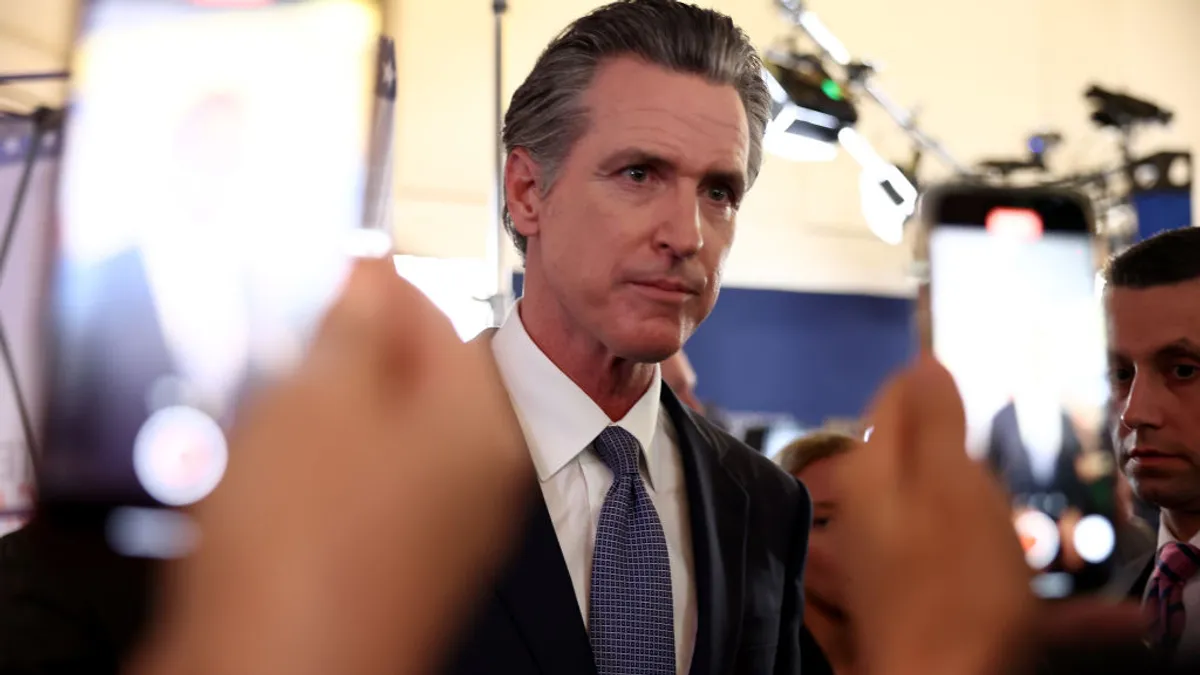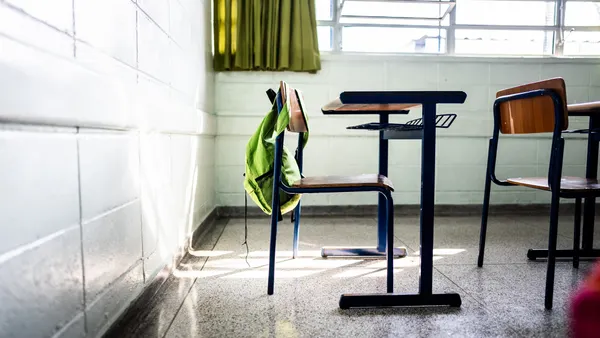Dive Brief:
-
The California Teachers Association and Gov. Gavin Newsom came to a compromise this week after the governor's proposed 2024-25 budget cuts prompted outcry from the CTA and California School Boards Association. The groups had claimed Newsom's plan would "devastate school funding for years to come" and be unconstitutional.
-
The compromise would sidestep major cuts and send an additional $5.5 billion to schools down the road. The agreement — which would need legislative approval — comes after the CTA said it would "explore all paths forward to ensure that public school funding is protected for our students and communities" and ran a paid television ad warning of bigger class sizes and teacher layoffs from the governor's proposed cuts.
-
Elsewhere across the country — including in Ohio, Connecticut and Maryland — districts are facing resistance over their own budget cut proposals, with teachers whose jobs are on the line rallying or staging public media campaigns.
Dive Insight:
In some places, budget deficits stem least partially from the end of pandemic federal funding. That historic infusion of cash allowed districts to hire personnel and implement new programs to help schools recover from the pandemic aftereffects. At the same time, enrollment declines and inflation have also taken a toll on school coffers.
Some district leaders and school board members facing challenging budget decisions have expressed concern over the impact cuts would have — but feeling like they are between a rock and a hard place.
Anticipated budget cuts have been forecast for years, with education experts warning of a fiscal cliff in 2024-25. As a result, districts have had to consider cutting staff, downsizing academic or enrichment programs, and reversing pandemic-era investments.
Now, unions are speaking up as cuts appear to be coming to fruition.
In Enfield, Connecticut, students, families and teachers rallied earlier this month over proposals that would eliminate at least 121 teaching jobs, according to the Connecticut Education Association.
“Losing a quarter of your school staff is an unacceptable cut,” said CEA President Kate Dias. Enfield Teachers' Association President Emily Hulevitch said budget cuts are "undermining teachers' ability to give their students what they deserve," according to CEA.
In California, similar resistance played out on the state level in response to Newsom's controversial proposal earlier this month. The governor's plan included lowering guaranteed funding to schools by nearly $12 billion over two years to close a budget deficit.
That funding was ensured under Proposition 98, which established an annual minimum funding yearly for K-12 schools. The formula is based on a percentage of state general fund revenues, or the prior year guarantee adjusted for K-12 attendance and inflation.
While Newsom's original proposal would have eliminated around $12 billion of that guarantee, the new agreement would instead push $5.5 billion of Proposition 98 funding to future years.
The state Legislature, however, proposed its own separate plan and said on May 29 it "continues to examine the new proposal" drafted by Newsom and the CTA.
In a May 17 response to the governor's original proposal, David Goldberg, president of the California Teachers Association, had said, “Essential services are on the chopping block. Educators are getting layoff notices."
The California School Boards Association had echoed similar sentiments and called on the public to contact the governor and to urge the state Legislature to reject the proposal.
After coming to agreement, Newsom praised the compromise as a "smart and balanced policy solution" that puts "the state on a fiscally sound and sustainable path" in a statement to Politico.
Agreeing, Goldberg said in a statement that "we need to preserve the progress we’ve made in funding for public education."
"Any cuts to education would have dire implications for our public schools, further exacerbating the inequities we see in our classrooms every day," he said.
The state Legislature, however, proposed its own separate plan and said on May 29 it "continues to examine the new proposal" drafted by Newsom and the CTA.








 Dive Awards
Dive Awards




